


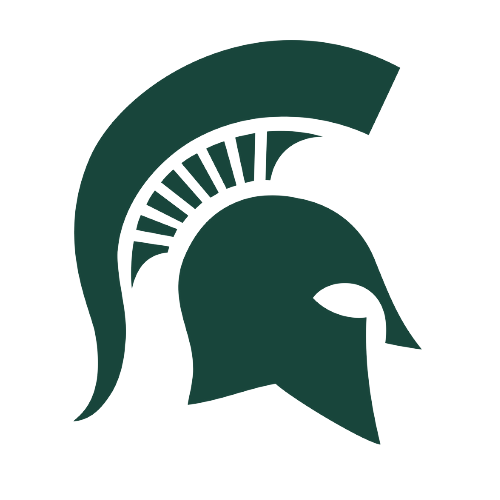


 Official Transcript
Official Transcript  Recent Grades Report
Recent Grades Report  Standardized Test Scores
Standardized Test Scores .svg) Essay
Essay  1 Recommendation
1 Recommendation  Online Application From
Online Application From  Application Fee
Application Fee  Parent/Guardian Consent
Parent/Guardian Consent 


Application is closed


MST@MSU is a one-week commuter or residential program for 7th-8th grade students. MST@ MSU 7-8 will have opportunities to take advanced STEM curriculum in the form of three classes for one week.
 Non-credit
Non-credit
 Residential
Residential
The Mathematics, Science, and Technology (MST@MSU) program at Michigan State University is a one-week commuter or residential summer program for academically talented middle school students who are currently in grade 7 or 8 during the 2022-2023 school year.
The focus is on mathematics, science, and technology, as well as applications in these areas. The goal is to match the intellectual abilities of talented adolescents with rigorous and challenging course work which provides enrichment, but does not duplicate or accelerate course work that is part of the regular K-12 school curriculum.
Each day (Monday-Friday), there will be three classes, each two hours in length.
Student Advantages
To experience active learning, as students investigate problems that can be solved through a better understanding of mathematics, science, engineering, and technology
To focus on an intensive area of study, allowing for interdisciplinary research using tools of mathematics, science, and technology
To link the tools of many career fields, as focus is given to real world problems.
On-campus, commuter or residential
Below are the class descriptions for MST@MSU (grades 7-8). Students will now select one course track for the week consisting of three academic classes. Students may choose to attend both weeks of MST.
Nuclear Astrophysics: The Nuclear History of Our Universe
Where were the elements made? Over the last 14 billion years, nuclear reactions such as fusion, fragmentation, and radioactive decay have created dramatic change. The fundamental nature of the atomic nucleus has driven the chemical evolution of the universe and the energy cycle in stars. This course, sponsored by MSU’s world-class Facility for Rare Isotope Beams (FRIB), will pull back the curtain on nuclear research and careers!
Discover nuclear concepts with a hands-on model Tour FRIB's world-leading rare isotope research areas Simulate the building of elements in our universe – Big Bang nucleosynthesis, stellar fusion, and explosive capture processes Create a model that demonstrates binding energy and the limits of stability Update yourself on the latest research in nuclear astrophysics Explore careers in research science (or, “why people will pay you to learn things”)
Chemistry: Flames, Foam, Rainbows, and Ice Cream
Chemistry is all around us in both the microscopic and macroscopic world. That which takes place on the particulate level impacts the properties of matter and the changes it undergoes. Chemistry lays the foundation for the understanding of all aspects of science.
In this course students will:
Explore the differences between chemical and physical changes of matter, including separating water into its elemental components of hydrogen and oxygen.
Explore the factors that influence the speed at which chemical reactions occur, including an experiment where students will be challenged to manipulate a particular chemical reaction to take place in exactly 10 seconds.
Explore the chemistry of acids, bases, and pH, including demonstrations and experimentation of several brilliant color changing acid-base titrations.
Explore different states of matter and energy transfer, including the use of liquid nitrogen to make ice cream.
Each day will include a classroom lesson, a classroom demonstration, and a laboratory experiment.
Web Development Fundamentals
This week-long course is designed for students who want to learn how to create dynamic, responsive websites from scratch. Through hands-on projects, students will learn how to use popular web development technologies such as HTML, CSS, JavaScript, jQuery, Bootstrap, GitHub, and Visual Studio Code.
STATS in STEM
Statistics can be one of the most important classes you take, no matter what you decide to study in school or what job you will wind up having. Who uses statistics, you ask? 1) Personal Boards 2) United States Department of Labor 3) Michigan Department of Mental Health 4) Consulting Firms 5) Law Enforcement Agencies 6) United States Defense Manpower Data Center, just to name a few. The list goes on and on!
One of the keys to getting a higher-paying job in both the government and private settings is whether the employee has a solid understanding of statistics and research methodology. Indeed, companies and the US government are willing to pay a high price for statisticians to help them analyze their data. Whenever they find an employee who has the skills to do it, they fall all over themselves to hire that person and make them happy. Why? Because it saves them a lot of money!
Kinesiology: Understanding Human Motor Learning and Performance
Kinesiology is made up of two Greek words, kinesis and logia, literally meaning “motion science.” These words might make you think of physics, but kinesiology is focused on studying human movement in all its forms, from dancing to recovering from an injury. Kinesiology scholars are not only interested in what makes the human body move to its greatest potential, but also what makes movement unique or difficult.
At Michigan State University, the Department of Kinesiology is dedicated to the study of physical activity and sport across the lifespan, with a special emphasis on youth. MSU professors and instructors will students learn and understand the broad spectrum of Kinesiology. Students will focus on movement from multiple perspectives - physiology, neuroscience, and biomechanics. They will also use computer simulation to demonstrate how the nervous system and the muscles work when doing difficult tasks.
Composing Electronic Music
Learn how to work creatively with music and technology. In this class, students will learn to compose music through use of DAWs and other music-making platforms. Students will also learn how to create music by means of virtual instruments and Midi. Students should plan to learn the basics of audio recording techniques and sound engineering.
Students must currently be in grade 7 or 8. Although students may be younger than the grades stated, the nature of the acceleration and the high school level content, no exceptions to younger students will be granted.
 Official Transcript
Official Transcript
 Recent Grades Report
Recent Grades Report
 Standardized Test Scores
Standardized Test Scores
.svg) Essay
Essay
 1 Recommendation
1 Recommendation
 Online Application From
Online Application From
 Application Fee
Application Fee
 Parent/Guardian Consent
Parent/Guardian Consent
Each program requires a non-refundable $75 application fee.
Students must submit the following with their MST application:
1 - Test Scores (score of only one test)
ACT or SAT scores of at least:
ACT: Math 18, English 18, Reading 18, or Composite 18
SAT: Math 480 or Evidence-Based Reading & Writing 480
PSAT 8/9 Math: 430, or Reading: 450 (We will accept the PSAT 8/9 if the test was completed prior to 7th grade. Additional testing (such as the CogAT) may be required if the testing in the PSAT was not administered as an above grade level test when taken or if the score does not meet the minimum requirements.)
CogAT: 90th percentile
Register to take the CogAT with MSU GATE HERE
IQ Test
2 - Teacher Recommendation Form from one of your teachers in the subject areas of math, science, or technology: During your online application, you will be asked to provide a teacher's school email address, and we will send them an email requesting that they fill out an online recommendation for you. (Do NOT ask your teacher to write you a letter of recommendation - only our online recommendation form will be accepted.)
3 - Most recent grade report
4 - Essay
In at least two paragraphs, please describe the following:
1) Why would you like to participate in MST@MSU?
2) Why do you feel you should be selected for MST@MSU?
Please note: Students need to meet the criteria for the ACT, SAT, or CogAT. Students need to take and submit scores for only one of these tests. An IQ test is also acceptable in place of these standardized test scores.
Deadline
Acceptance decisions will be made on a rolling basis.
 Jun 26 - Jun 30
Jun 26 - Jun 30
 1 week
1 week
 Jul 10 - Jul 14
Jul 10 - Jul 14
 1 week
1 week
 Jul 10 - Jul 14
Jul 10 - Jul 14
 1 week
1 week
Application Fee
All programs (GUPPY, IS4GT, MST, and MSTL) require a $75 non-refundable application fee.
IS4GT, MST or MSTL: $895 commuter (includes lunches), $1,995 residential the week of July 10, 2023
Tuition Payment Information
GUPPY, IS4GT, MST and MSTL: Once accepted into the program, each student must pay half tuition 7 days after acceptance. The remaining balance will be due 7 days later. Contact the GATE office if a payment plan is needed. However, please realize that tuition must be paid in full within 2 weeks of acceptance.
GUPPY, IS4GT, MST, and MSTL: Parents are responsible for getting their students to and from camp. Students should bring a small amount of personal spending money for souvenirs, etc.
Change Fee: $25 change fee for students who request a program change or add additional tracks for any reason after acceptance.
Financial Aid
Tuition assistance from the GATE office may be available to those with financial need. GATE strives to support families who cannot afford the tuition required to attend GATE programs. Aid is granted based on family income using the Federal Eligibility Guidelines for Reduced Lunch.
Please note that you are responsible for paying the program’s application fee and are subject to the GATE refund policy.
Parents are required to check with your student’s school prior to applying for financial aid. Most schools in the Greater Lansing area contribute to GATE program tuition. Qualifying students in a contributing district are not eleigible for financial aid except in cases where the district does not contribute the entirety of GATE tuition.
Financial aid may only be requested through the May application deadline. After that, funds will not be awarded.
Because financial aid funding is limited, families are restricted to receiving one award (one session) per student's lifetime. This Financial Aid policy is subject to change. Districts who have students applying for financial aid will be limited to two (2) recipients per year. Students will be prioritized based on the financial aid application submission date.
We do not accept financial aid applicants whose permanent residence is outside of the state of Michigan.




 Official Transcript
Official Transcript
 Recent Grades Report
Recent Grades Report
 Standardized Test Scores
Standardized Test Scores
.svg) Essay
Essay
 1 Recommendation
1 Recommendation
 Online Application From
Online Application From
 Application Fee
Application Fee
 Parent/Guardian Consent
Parent/Guardian Consent



Application is closed

Useful Resources
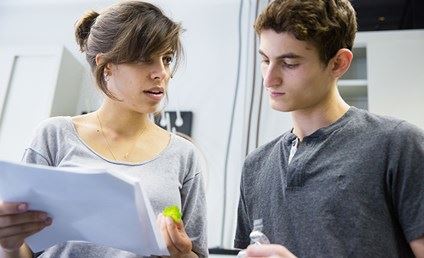






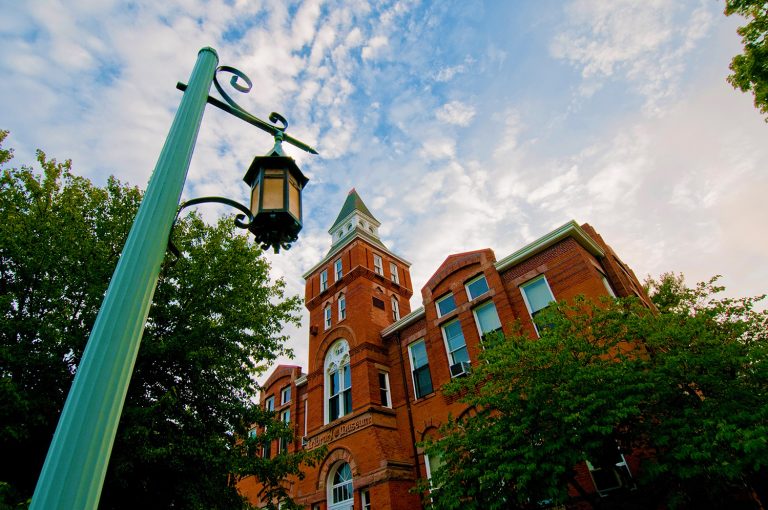
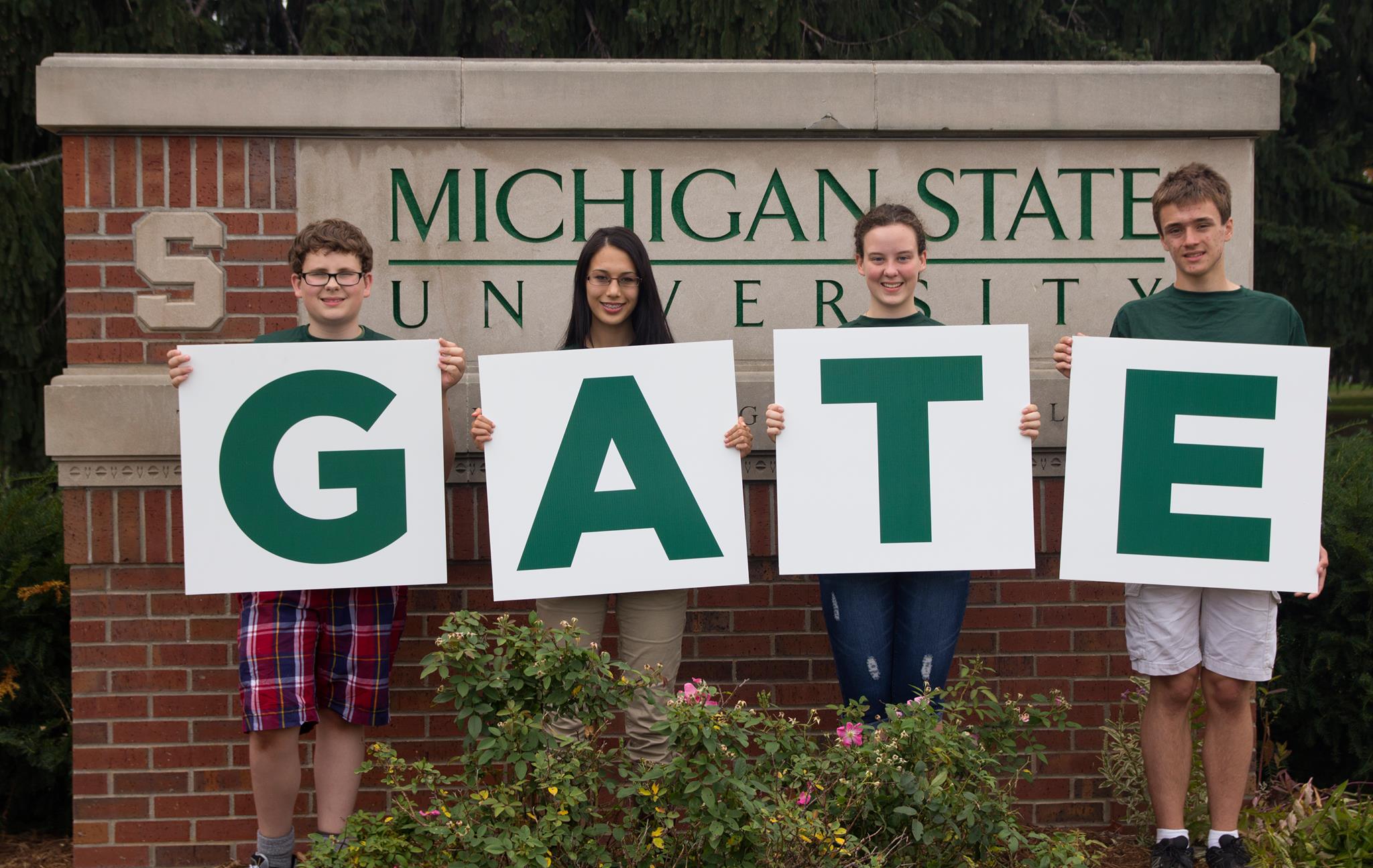
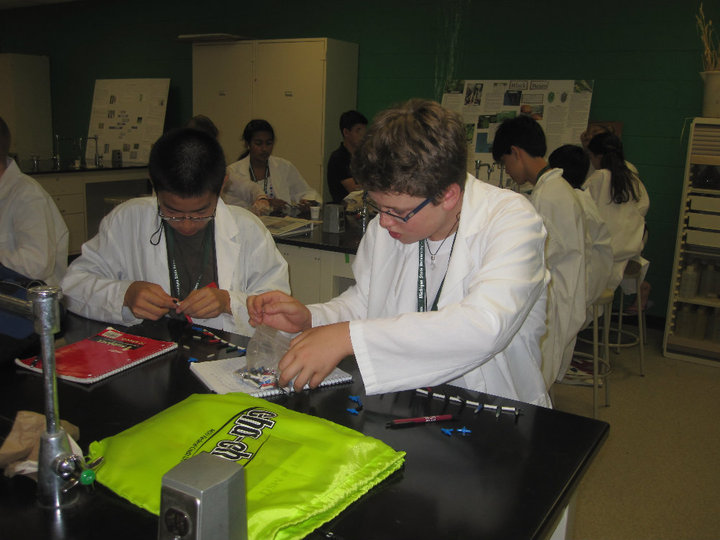
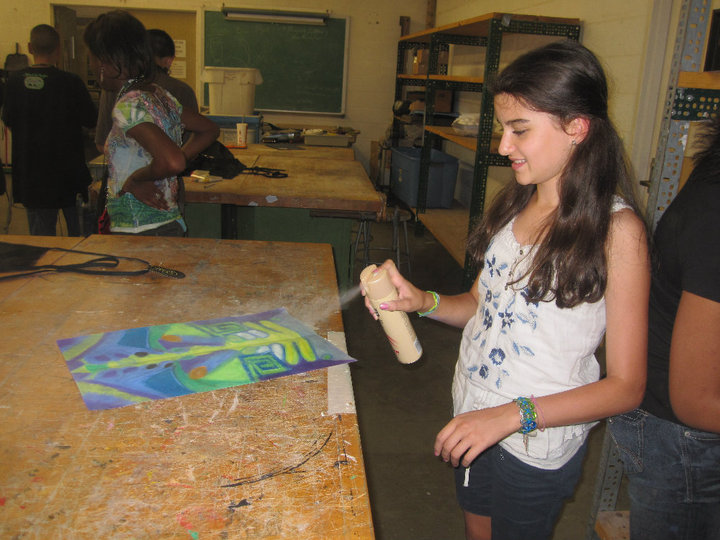
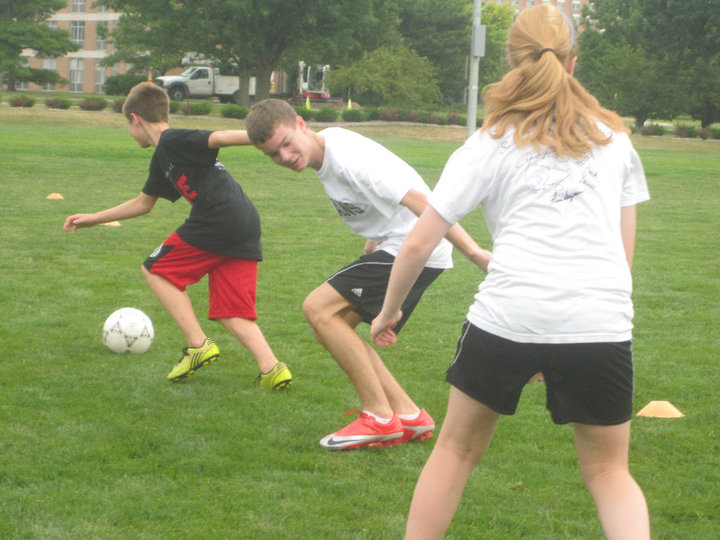




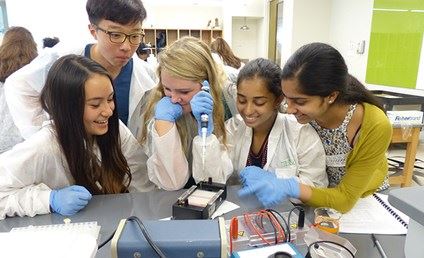

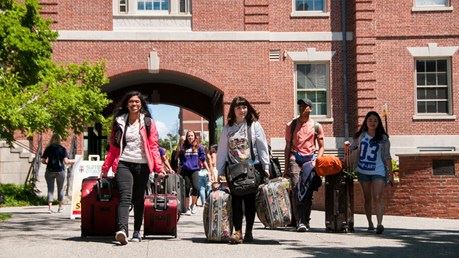

Tell us your
opinion about us